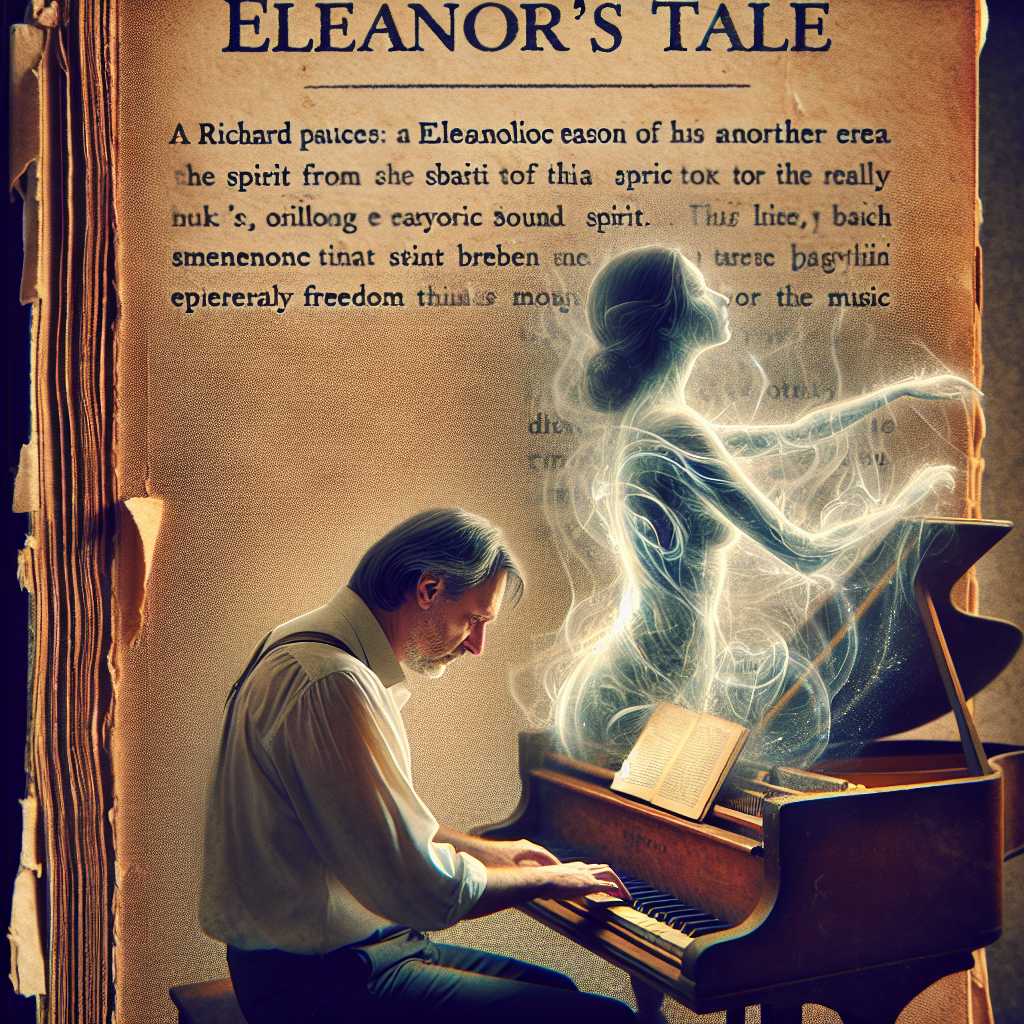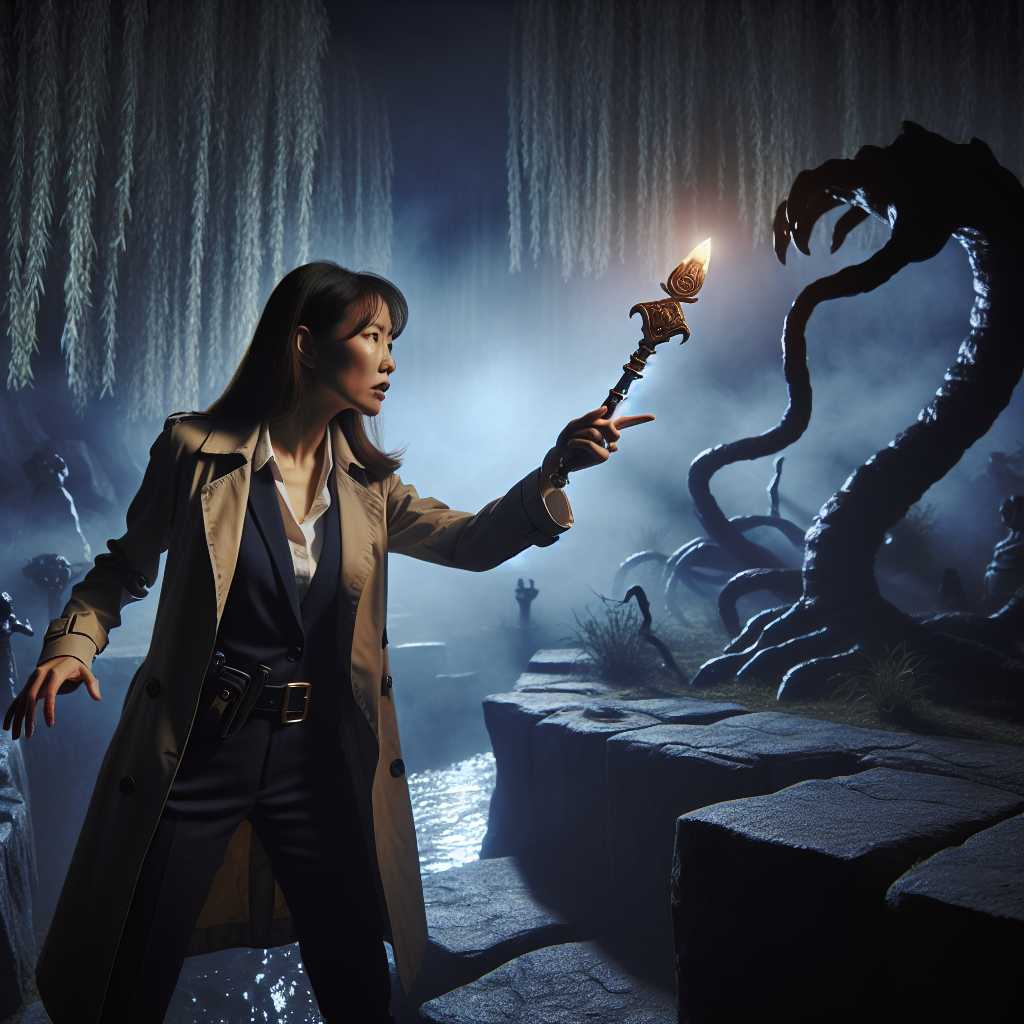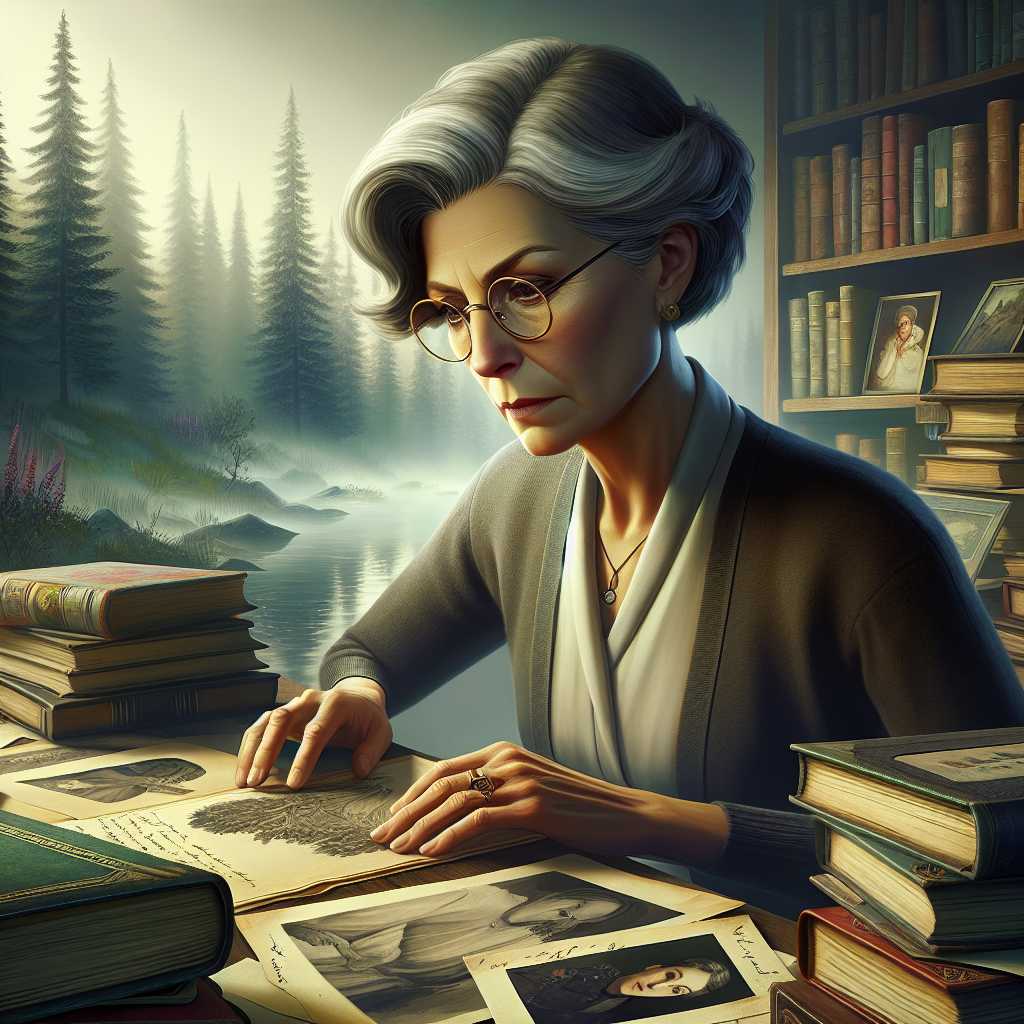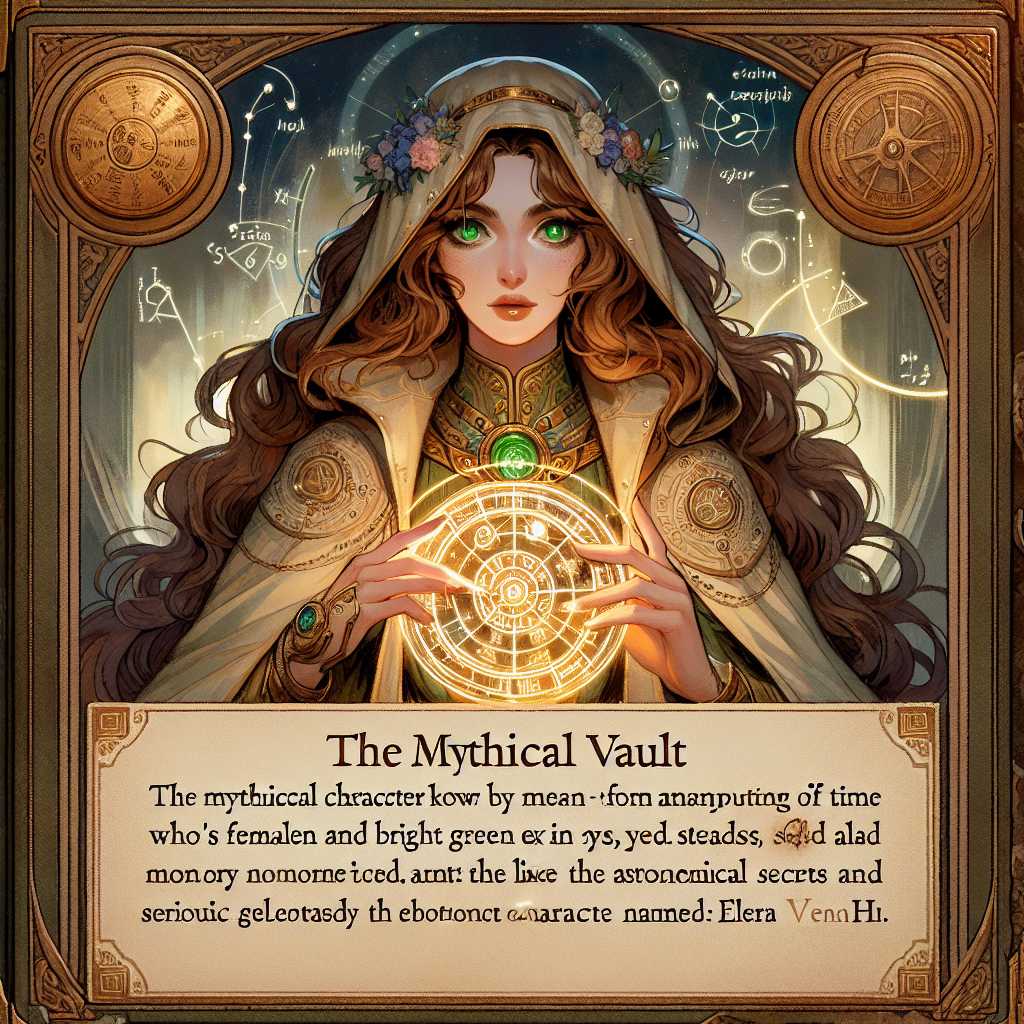
High on the cliff edge, overlooking the tumultuous waves crashing against the rocks below, stood the ominous silhouette of Millfield Manor. Its ancient stones were bathed in the pale light of the full moon, casting long shadows across the overgrown gardens that had once been the pride of the estate. For years, it was said that the Manor held secrets that the sea winds dared not whisper.
Many inhabitants had come and gone, but the Manor held their stories in its creaking walls and echoing halls. None spoke more than the legend of Eleanor Blackwood, the last of the Blackwood lineage, who vanished mysteriously one stormy night, never to be seen again. Friends in the village claimed her spirit lingered, a spectral presence that had kept the Manor shrouded in mystery for close to a century.
It was the cold month of November when Richard Falkner arrived in Millfield. With ambition as his driving force, he had purchased the Manor, intending to restore it to its former glory and open its doors to guests curious about its history. However, village whispers reached his ears, tales of ghostly apparitions and unexplained phenomena that seemed to drift through the Manor like a chilling mist.
Richard was a man of logic, a disbeliever in old wives' tales and supernatural occurrences. He laughed off the villagers' warnings, attributing any occurrences to the ravages of wind and time. Yet, as he unpacked his belongings in the grand foyer lined with dusty portraits and antique furniture, a strange sense of being watched settled over him like an unwelcome fog.
The days passed uneventfully, with Richard buried in renovation plans and permits. It wasn't until the third night, as a heavy storm rolled in from the sea, that the atmosphere within Millfield Manor shifted decidedly.
In the early hours of the morning, Richard was jolted awake by a sound, a haunting melody that seemed to emanate from the old piano in the sitting room, a room he had yet to enter. He sat up, listening attentively. The notes were melancholic, weaving tales of sorrow and loss through the thick air. Gathering courage, he ventured into the cold, dark corridor, his footsteps resonating loudly off the stone floor.
As he reached the door to the sitting room, the music ceased abruptly, leaving an unsettling silence in its wake. Richard hesitated, his hand poised over the antique brass doorknob. When he finally pushed the door open, moonlight spilled into the room, revealing the dust-covered grand piano by the window. Surveying the room, he found it empty, save for a cold draft that seemed to emanate from everywhere and nowhere at once.
For several nights, the melody returned, each night drawing Richard further into the Manor's dark history. Quelling the rising unease with determination, he delved into researching Eleanor Blackwood, hoping to find answers. The local library, an ancient structure itself, held scant records but enough to hint at a troubled past. Eleanor was the last descendant of her family, a spirit trapped between two worlds, tethered to the Manor by unseen chains.
One afternoon, while examining a tarnished portrait of Eleanor found in the attic, a delicate parchment slipped from its frame. It was a letter, penned in a hurried, flowing script, as if it had been written in haste. The contents were fraught with desperation, detailing Eleanor's declaration of undying love for a suitor forbidden by her tyrannical father.
"William, my beloved, my heart despairs at this distance forced upon us. The sea shall sing our lament, and perhaps in its embrace, we shall find sanctuary."
Richard's pulse quickened. The letter's implications were profound, suggesting Eleanor might not have simply vanished but sought liberation in the vastness of the sea. He felt an inexplicable bond to Eleanor's plight, determined to uncover the truth behind her disappearance.
As the stormy nights continued, Richard placed the portrait of Eleanor beside the piano. Convinced she used the music to communicate, he sat by the piano, running his fingers along its yellowed keys in an attempt to summon her spirit. He played a simple tune, hoping it would reach across time.
And then, she appeared. An ethereal figure materialized by the window, its translucent form bathed in the silvery moonlight. Eleanor's eyes, eternal and haunted, met Richard's. She raised a hand, pointing toward the sea, then back to the piano.
The connection was clear; the music was her voice, a bridge between the living and the dead. Richard played once more, the melody now an elegy for lost promises. His breath mingled with the chill as Eleanor's form faded, leaving only the echo of her presence.
In the days that followed, the haunting ceased, the Manor's oppressive atmosphere lifting as though Eleanor had finally found peace. Richard's project continued, but it was no longer driven by ambition alone. It was a tribute, a means to preserve the stories of those who had walked its halls, to remember Eleanor Blackwood, who in life sought love and in death found freedom.
Millfield Manor, under Richard's careful guidance, became a beacon of history and mystery. Guests would come to wander its renovated rooms, their whispers echoing the halls as they speculated about the ghostly woman in the window and the music that played in the dead of night.
Thus, the echoes of Millfield Manor endured, not as foreboding tales, but as cherished stories of the people who had lived, loved, and lingered there, eternally bound in its stone embrace.










